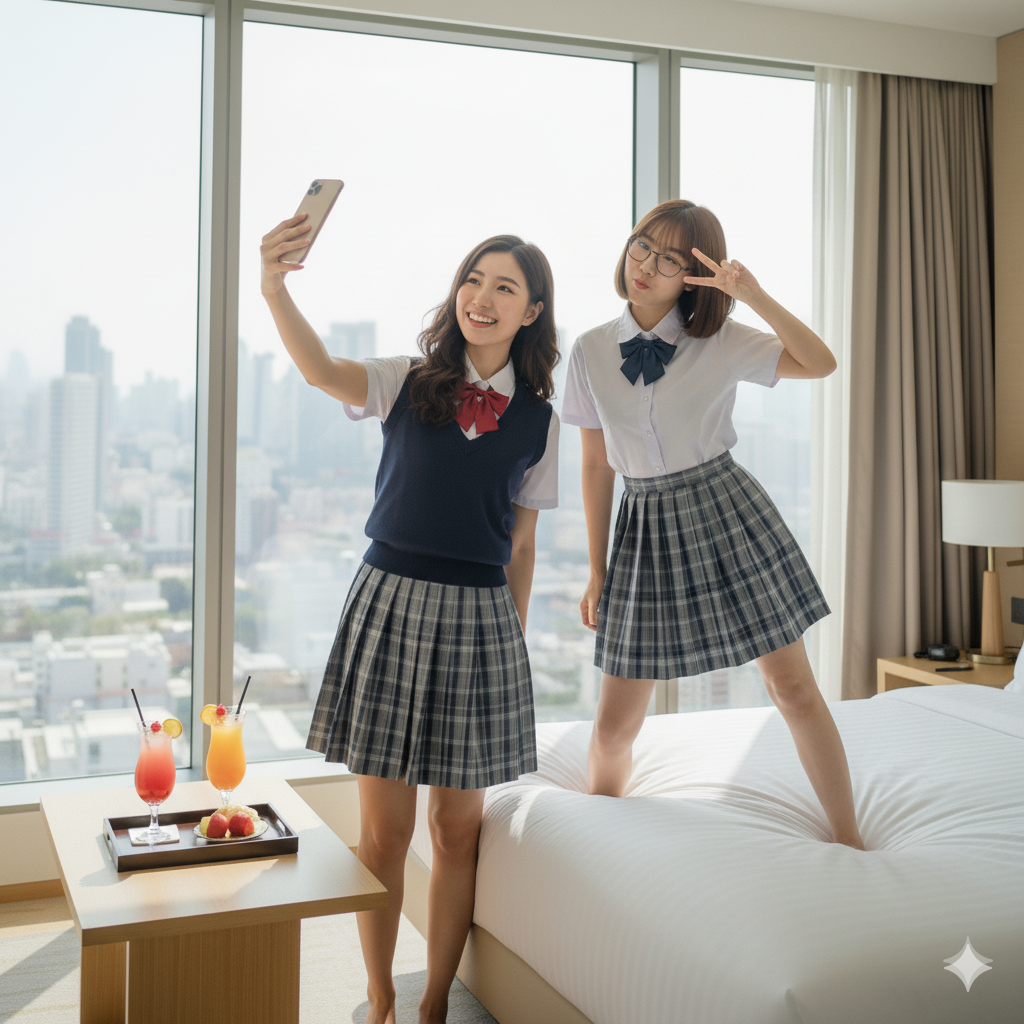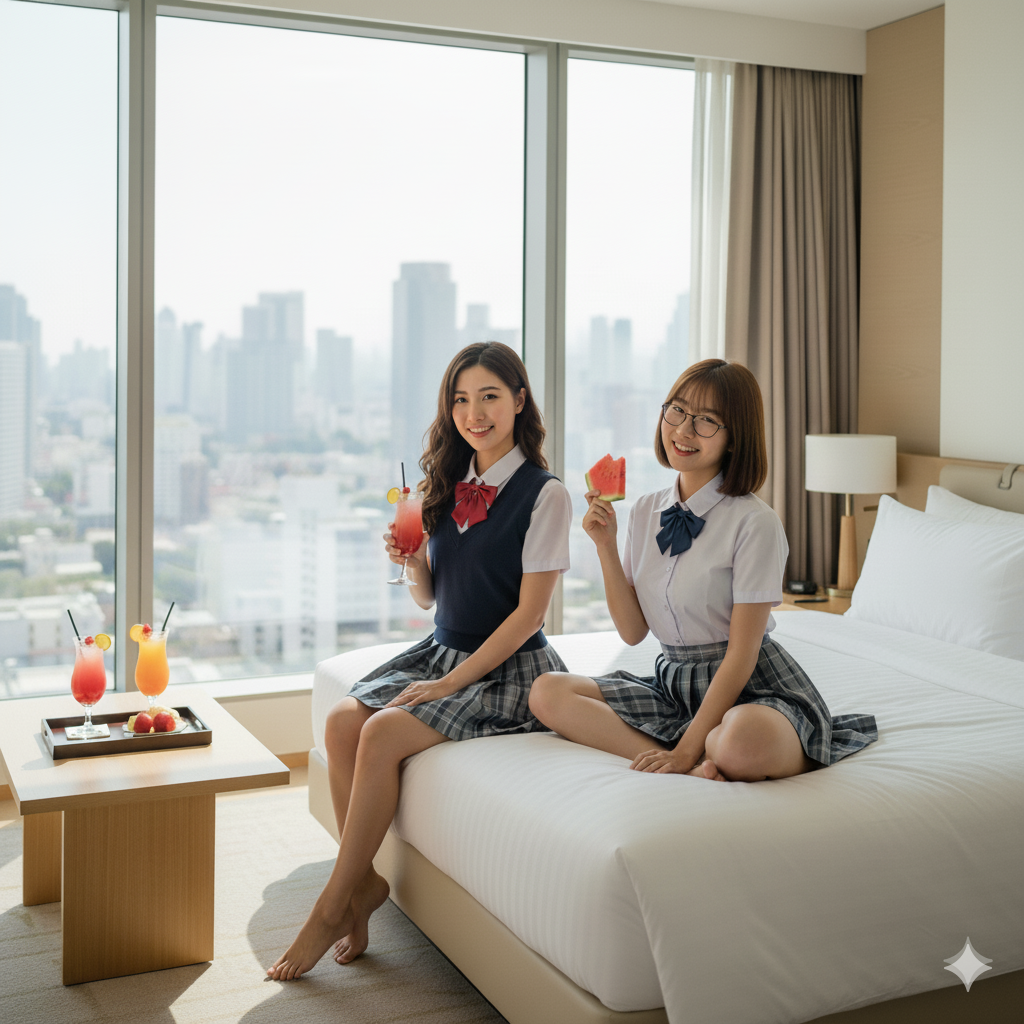A host club in Japan is a structured conversation bar where male hosts entertain guests (mostly women) through talk, toasts, and table hospitality. You pay a time-based table fee, drinks (yours and any you gift), and a tax/service add-on. New guests often get a discounted “first-time” plan. Most famous districts are Kabukicho (Shinjuku), Roppongi, and regional hubs. Below you’ll find how the system works, realistic budgets, how to enter, etiquette, phrases, and starter venues with official links.
How a Japanese Host Club Works (Ethnographic Snapshot)
In modern Japanese nightlife, intimacy is staged as institutionalized, time-boxed hospitality. A host club is a lounge-style, booth/sofa space with dim lighting and MC cues. The core script is consistent: reception explains the set (60–120 min) and fees → you’re seated → hosts rotate by time block to handle conversation, pouring, and toasts → optional bottle-keep for regulars → checkout with tax/service. Touching is restricted; the focus is managed conviviality—talk, music, light games, and celebration rituals (e.g., champagne call). Many large groups publish clear systems and first-timer pricing on official pages such as AIR GROUP (System), groupdandy (System), and Smappa! Group (Fees & Services).
- 1. What exactly happens inside a host club?
- 2. Where to try it (Tokyo areas & reputable groups)
- 3. How much does it cost (first-time vs. regular, bottles, service)?
- 4. How to enter smoothly (ID, dress, seat flow, payment)
- 5. Etiquette, safety, and easy Japanese phrases
- 6. Summary and Next Steps
1. What exactly happens inside a host club?

1-1. The standardized script
Reception outlines the plan; you’re seated and welcomed. Hosts rotate every few minutes to learn your preferences, suggest drinks, and keep the conversation lively. If you decide to become a regular, you can appoint (shimei) a host on the next visit, which changes pricing and rotation. See the group-level explanations on AIR GROUP.
1-2. What hosts actually do
They pace the evening: introduce themselves, pour drinks, make small talk, queue songs, and celebrate orders (e.g., a champagne call). Their craft is social performance—a ritualized, theatrical form of attention that makes guests feel seen.
1-3. What it is not
Host clubs are conversation venues. Physical contact is limited by house rules; staff enforce boundaries to keep the room safe and enjoyable. For plain, transparent rules and prices, study the official explanation by Smappa! Group.
2. Where to try it (Tokyo areas & reputable groups)

2-1. Kabukicho (Shinjuku)
Tokyo’s densest cluster, ranging from beginner-friendly “first-time plans” to VIP-heavy rooms. System pages: AIR GROUP (official), groupdandy sample system, and Smappa!’s detailed fee logic: official page.
2-2. Roppongi & beyond
International crowd, corporate dinners, and celebratory nights. Policies vary by store; confirm on the venue’s official site. Public-facing celebrity owners exist, but rely on their official pages for accurate info (e.g., Roland Official for announcements).
2-3. How to pick a room
Check three things on the official site: (1) first-time price (初回), (2) what’s included (drinks, time), (3) how tax/service is counted. Cross-read at least one group page—e.g., Smappa! Group—before you go.
2-4. Comparison at a glance (group pages)
| Group (Official) | Beginner Help | First-time Info | Notes |
|---|---|---|---|
| AIR GROUP | System page in JP | Outlines standard charges | Large multi-store network |
| groupdandy | Per-store “System” | Lists set fees/taxes | Many Kabukicho venues |
| Smappa! Group | Plain English-friendly explanation style | First-time plan stated | Detailed bill breakdown |
3. How much does it cost (first-time vs. regular, bottles, service)?

3-1. Reading a bill
Your total typically = Table/Set Fee + Drinks/Food (yours & gifted to hosts) + Tax/Service. Smappa! provides a very concrete example (set fee by entry time, per-drink sample prices, extension math, and rounding to the nearest ¥1,000) on its official page.
3-2. First-time vs. regular
“初回” plans are discounted, time-limited, and often prohibit choosing a specific host (rotation only). Once you appoint a host on later visits, the normal set/extension pricing applies (see Smappa! Group for the before/after logic).
3-3. Bottles and celebrations
Bottle-keep (whisky/shōchū) is standard for regulars; champagne calls are celebratory but expensive. Group pages show bottle and glass ranges; Smappa!’s menu examples (e.g., beer ¥1,500; cocktails ¥2,000; champagne from high tens of thousands) appear on the same official page. Always check the store’s own “System/Menu”.
4. How to enter smoothly (ID, dress, seat flow, payment)

4-1. Walk-in vs. booking
Walk-ins are common for first-time plans; call ahead for busy weekends or events. If you already know a host’s name from social media, you can mention it, but note that first-time plans may restrict appointments.
4-2. Dress & conduct
Smart-casual works everywhere: clean sneakers or shoes, no beach sandals. Keep aisles clear, don’t pour onto speakers, and follow staff cues during celebration calls.
4-3. Payment & extensions
Confirm whether cards are accepted (most big rooms do). When your set time is nearly up, staff will ask if you’d like to extend. Ask for the extension fee and added time before agreeing—Smappa!’s page shows concrete extension numbers and how rounding is handled: official explanation.
5. Etiquette, safety, and easy Japanese phrases

5-1. Ten simple etiquette rules
- Confirm the plan: first-time price, what’s included, and service %.
- Time awareness: decide early whether to extend.
- Phone manners: keep on silent; step away for calls.
- Consent & boundaries: physical contact is restricted; follow house rules.
- Drink pacing: you choose what to buy for yourself or a host.
- Photo etiquette: always ask; protect other guests’ privacy.
- Seat care: bags off aisles; use hooks/lockers if available.
- Cashless: many accept cards; check at reception.
- Exit grace: settle smoothly; thank your host and floor staff.
- Return strategy: consider bottle-keep if you’ll visit again.
5-2. Useful Japanese phrases
- 「Shokai puran wa arimasu ka?」— Do you have a first-time plan?
- 「Kyō no setto wa nan-pun desu ka?」— How many minutes is tonight’s set?
- 「Enchō wa ikura desu ka?」— How much is the extension?
- 「Zei to sāvisu wa dono kurai desu ka?」— What are tax & service percentages?
- 「Kaado tsukaemasu ka?」— Can I pay by card?
5-3. Safety & transparency
Use large, well-known groups with clear “System” pages: AIR GROUP, groupdandy, and Smappa! Group. Ask staff to break down the bill line-by-line if you’re unsure—this is normal and welcomed in professional rooms.
6. Summary and Next Steps
6-1. Copy-and-go plan (tonight)
- Choose a group with clear pricing (links above). Screenshot the first-time plan.
- Arrive 20:30–22:00 in smart-casual; bring photo ID.
- At reception: confirm set length, what’s included, tax/service, and extension fee.
- Decide at the 45–60 min mark whether to extend; otherwise close gracefully.
6-2. Internal guides for deeper planning
6-3. Contact & booking support
Want a shortlist with phone wording and an arrival map? Use the SoapEmpire contact below or the venue’s official reservation line.
Recommendation: Your Smoothest Path into what is a host club in japan
Many first-timers type what is a host club in japan and fall into a maze of jargon—first-time plan, set fee, appointment, extension, champagne call, bottle-keep, service %. Add the pressure of choosing a room in Kabukicho and the fear of overspending, and the night can feel intimidating before it even begins.
SoapEmpire turns that complexity into a simple, dignified plan. Tell us your budget, music tolerance (quiet lounge vs. lively floor), and comfort level with Japanese. We’ll match you to two or three reputable rooms whose official “System” pages we’ve checked the same day, translate the first-time plan into plain English, and prepare two sentences to confirm your bill at the door. If you want to explore appointing a host later, we’ll explain how that changes pricing and rotation—and whether a bottle-keep makes financial sense for you.
Our advantage is clarity and calm. We know which groups explain fees transparently, how tax/service are applied, and when rounding occurs. We’ll also design a ten-minute arrival script: where to stand at reception, what to say when staff propose an extension, and how to decline extra drinks politely without awkwardness. If your group includes visitors with different budgets, we’ll outline a shared-check plan so everyone is comfortable.
When you’re ready to experience the social artistry of Japan’s host clubs—conversation, toasts, and crisp hospitality without guesswork—SoapEmpire is your practical co-pilot from “curious” to “confident.” For reservations or inquiries, please contact us via the inquiry form.
If you’re interested in visiting any of these places, SoapEmpire offers a 24-hour booking support service for only $10.
Just send the store name, preferred time, and your name (nickname is fine) to: takuma@skylinks-inc.com.
We’ll take care of your reservation quickly and smoothly.
FAQ: What Is a Host Club in Japan?
Is a host club a sexual service?
No. It’s a conversation-driven lounge with time-based seating. Touching is restricted by house rules; the focus is talk, toasts, and hospitality performance.
How much should I budget for a first visit?
Common first-time plans run about ¥3,000–¥6,000 for 60–90 minutes (what’s included varies). Regular set fees for two hours often total ¥13,000–¥16,000 before drinks, with extensions around ¥7,000–¥9,000, plus tax/service—see group “System” pages like Smappa! Group for concrete examples.
Do I need a reservation?
Walk-ins usually work for first-time plans. On weekends or event nights, call ahead. If you’re appointing a specific host, ask the venue how that affects entry and pricing.
How do bottle-keeps and champagne calls work?
A bottle-keep stores your bottle with a name tag for next time and can reduce per-glass costs if you return. Champagne calls are festive but pricey; confirm the label and total before ordering. See menu ranges on official pages like Smappa! Group.
